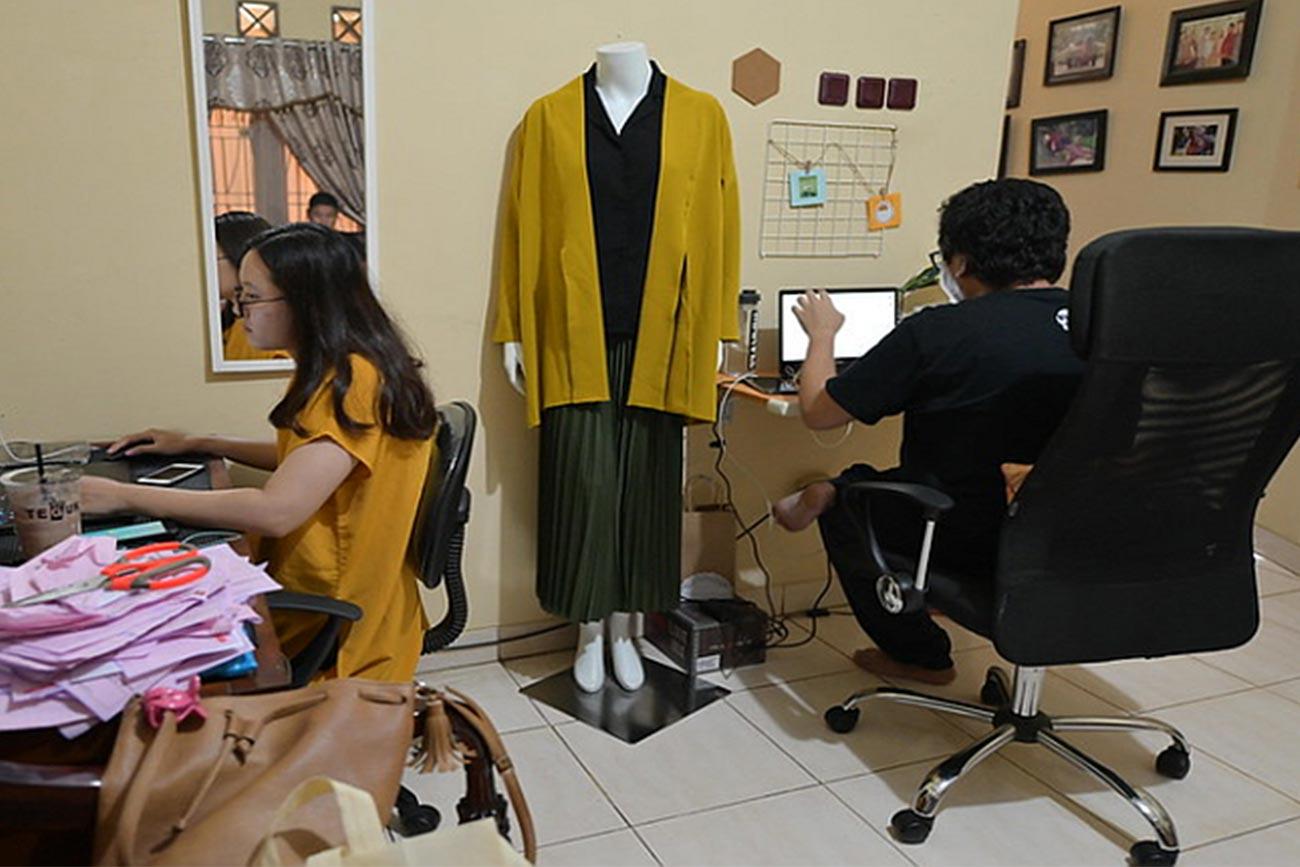Getting ready for online businesses in the new normal

The COVID-19 pandemic has forced many businesses to close their physical locations, urging them to shift from offline to online to survive
Responding to the growing need for ICT skills caused by COVID-19 pandemic, more than 600 participants undertook the online training programmes, supported by the ILO and the Indonesian Retail Association (APRINDO), to maintain their competitiveness with improved digital skills.
The COVID-19 pandemic has forced many businesses to close their physical locations, urging them to shift from offline to online to survive. Having a digital presence is more important than ever for businesses, including the retail businesses.
Responding to the growing need for information, communication and technology (ICT) skills, the ILO in collaboration with the Indonesian Retail Association (APRINDO) had conducted six batches of two online trainings from May to August: Creating Online Shop Application Training and Online Shop Administration Training.
Targeted to business owners and laid-off workers, these online trainings aimed to develop knowledge and skills to create an online store application and to increase the employability of the participants in the retail sector for income generation and sustainable livelihoods.
A total of 624 participants nationwide participated, of whom 58 percent were women and 19 participants with disabilities. The majority of the participants were between the aged of 20-30 years old (43%), followed by over 40 years old (27%) and of 31-40 years old (21%). Most of them were working employees, business owners and job seekers.
Each batch of training consisted of 4-day online shop application training with a duration of three hours per session and of 2-day online shop administration with a duration of four hours per session. The online shop application training covered online store design, identification of online platform, database management, online transaction and customer management; while the online shop administration covered administration for inventory, sales and digital marketing.
Ensuring quality of training programmes
To ensure the quality of these two training programmes, constant improvements were made. To smoothen the transition from offline to online business, session on infographic design was added for improved brand design and business profile. Materials on digital marketing and business collaboration were shared for market expansion and pre-reading materials were distributed in advance to help preparing the participants.
"While both women and men have lost their income, we prioritize assistance to women as they are more vulnerable to the impact of COVID-19 outbreak. Women are more vulnerable to lose their jobs compared to men as they are employed in the worst affected sectors such as accommodation, food, sales and manufacturing"
“We continue improving the training programmes to ensure that the participants can apply what they have learnt and start or improve their online businesses. We hope that the participants can continue maintaining their competitiveness, productivity and competency during and, most importantly, after the pandemic,” said Navitri Putri Guillaume, the ILO’s Project Officer for Women in Science, Technology, Engineering and Mathematics (STEM).
These training programmes are relevant with the efforts taken by the ILO through its Women in STEM Project to assist women gain quality employment and support career advancement of women, particularly in the fields of information technology. The ILO’s latest monitoring on the COVID-19 and the world of work revealed that women workers have been disproportionately affected by the pandemic due to their over-representation in some of the economic sectors worst affected by the crisis.
“While both women and men have lost their income, we prioritize assistance to women as they are more vulnerable to the impact of COVID-19 outbreak. Women are more vulnerable to lose their jobs compared to men as they are employed in the worst affected sectors such as accommodation, food, sales and manufacturing,” added Navitri.
Business consultation and coaching
Equipped with the new online skills, the participants have expressed their desires to implement their new skills in the real online business. The post training survey has revealed the enthusiasts of the participants to start their online shops/businesses.
"To ensure quality business developed by the participants, the training programmes would provide further business consultation and coaching for selected participants. These selected participants will have coaching sessions with business mentors to identify challenges, improve business development and enhance the marketing strategy"
For those with an online business, they were keen to improve the way they manage their businesses or to expand their businesses. Some of the participants even expressed their plan to share their new skills and knowledge with other entrepreneurs.
To ensure quality business developed by the participants, the training programmes would provide further business consultation and coaching for selected participants. These selected participants will have coaching sessions with business mentors to identify challenges, improve business development and enhance the marketing strategy. They will also receive technical advises from programmers to finalise their online store application, making it ready to be used in their online businesses.
The training programmes were conducted by the ILO through its Women in STEM workforce readiness and development programme . Funded by J.P Morgan Chase Foundation, the programme seeks to provide women with critical soft and technical skills to help women gain quality employment and support career advancement of women, particularly in the fields of information technology.
In the midst of COVID-19 pandemic and considering the skills requirements in this new context, the programme has expanded its scope to provide ICT trainings tailored for the needs of the retail sector.

